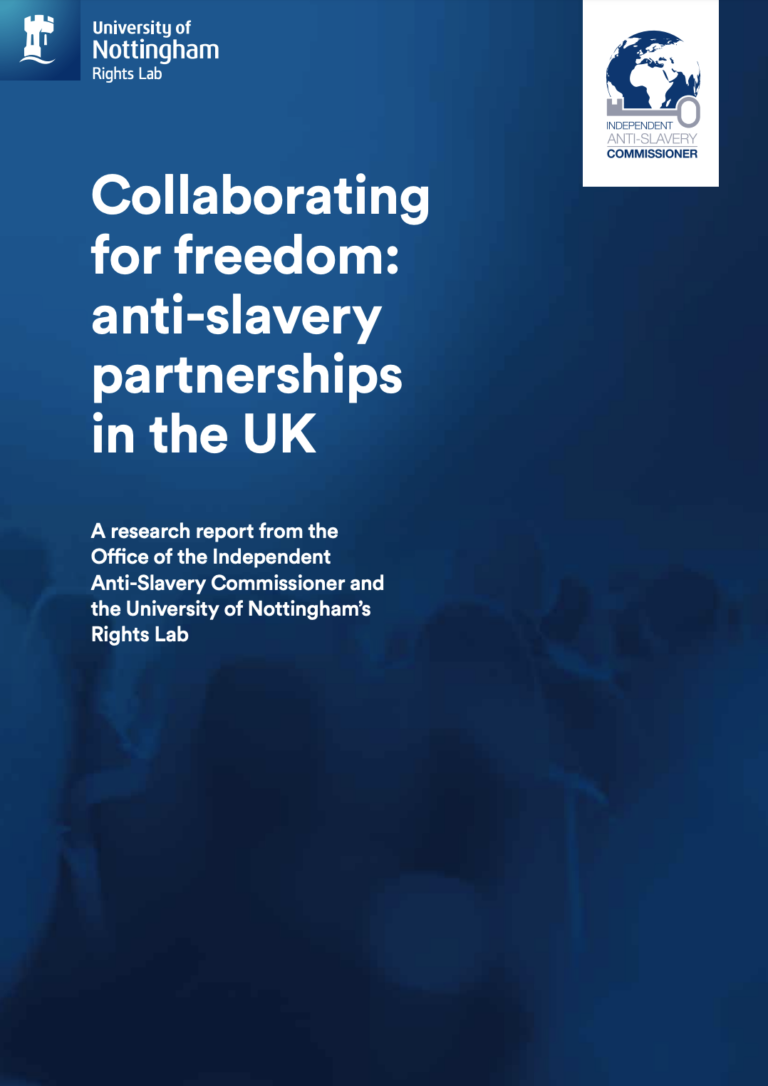2017 UK Annual Report on Modern Slavery
This Annual Report focuses on the steps the UK Government, the Scottish Government and the Northern Ireland Executive have taken in 2017 to combat modern slavery, including human trafficking.
Multi-agency partnership working is often highlighted as an essential aspect of the UK public policy response to modern slavery. The Home Office’s (2014) Modern Slavery Strategy emphasises that effective partnership work is ‘crucial’ and must include ‘greater awareness among frontline professionals, coordinated international activity, close working with the private sector and support from communities, including civil society and faith groups’.
However, despite the priority placed on partnerships by the UK Government, there has been little guidance to date on the form they should take, or how they might best identify and deliver shared goals and responsibilities. In the majority of cases there has also been no dedicated funding to facilitate partnership activity, and no means of monitoring what activity is in place. This means that until now, relatively little has been understood about the different partnership responses to Modern Slavery that are emerging across the UK.
This research report is part of a collaborative project between the Office of the Independent AntiSlavery Commissioner (IASC) and the University of Nottingham. The aim of the work was to map multi-agency anti-slavery partnerships across the UK, identify potential examples of ‘good practice’ among them and understand the conditions that helped to facilitate success.

This Annual Report focuses on the steps the UK Government, the Scottish Government and the Northern Ireland Executive have taken in 2017 to combat modern slavery, including human trafficking.
This Modern Slavery PEC Policy Brief is the third in a series of Policy Briefs that assess the evidence base on the effectiveness of different regulatory interventions to address modern slavery in global supply chains, a key research priority for th...Read More
Prostitution is a multi-faceted phenomenon: victims of exploitation and networks, housewives in precarious situations, female students, children, men...who prostitute themselves in the streets, on the Web, in bars, in massage parlors, along the road...Read More
The manual provides information on child labour including the worst forms of child labour, hazardous work and hazardous child labour lists, conducting child labour inspections, the labour inspector’s role when faced with the commercial sexual ex...Read More
The data in this report represents signals and cases from January 1, 2019 through December 31, 2019 and is accurate as of July 30, 2020. Cases of trafficking may be ongoing or new information may revealed to the National Hotline over time. Consequen...Read More